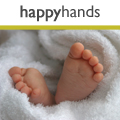Clinic
Breast is best! We've all heard that cry, but why is it best?
Because it is a food designed specifically for human babies, containing everything they need to grow and flourish.
Because it is a food designed specifically for human babies, containing everything they need to grow and flourish. In particular, the complex fats in human breastmilk are vital in brain development and may have an effect on intelligence in later life.
What else?
Well, breastfed babies are ten times less likely to be hospitalised with gastro-enteritis in the early months than formula-fed babies, and they also gain immunities against all sorts of other infections. Plus, the wonders of the human body mean that your milk changes during the course of a feed: it starts off thin and thirst-quenching (the “foremilk”), before becoming filling and packed with nutrients (the “hindmilk”). So breastfed babies rarely need any other drink and get just the right proportions in their food.
What about the advantages for you?
To start with, there is the incomparable closeness and bonding provided by breastfeeding your baby, knowing that you are giving him or her the best start in life. More practically, it’s a great deal easier than bottle-feeding, once you’ve got the hang of it: no bottles to sterilise, feeds to mix, or worries about heating the feed, Instead, it’s always available, always sterile and always at the right temperature. And you always have a sure-fire way of calming a crying baby! Add to this the facts that many women lose weight more easily after the birth if they breastfeed, and that there is strong evidence that breastfeeding gives some protection against breast cancer in later life, and you have a pretty strong argument in favour of breastfeeding.
If you’re finding it hard going, do contact our breastfeeding counsellor. But first of all, if you have sore nipples or your baby doesn’t seem to be getting enough milk, think about your positioning. The baby should be taking as much as possible of the areola (the dark area around your nipple) into his or her mouth, in particular the section under the nipple. If your baby is sucking just on the nipple, you will get very sore and the baby will get hungry.
And if you want to breastfeed, don’t be tempted to give the occasional bottle, at least in the early days: you could confuse the baby (teats are much easier to suck from than breasts) and make him or her less hungry, thus diminishing your supply.
Contact our Breastfeeding Network counsellor by e-mail: 113327.1544@compuserve.com
Or telephone our National Childbirth Trust counsellor on: 01425 402057
Or email: swaynem@parliament.uk
Related Articles
First Aid courses from an award winning London based company
Head Injuries - what to do and what to look out for
Have Your Say
Be the first person to comment on this article, just post a comment below.





In order to post a comment you need to be a member. Join Now | Sign in